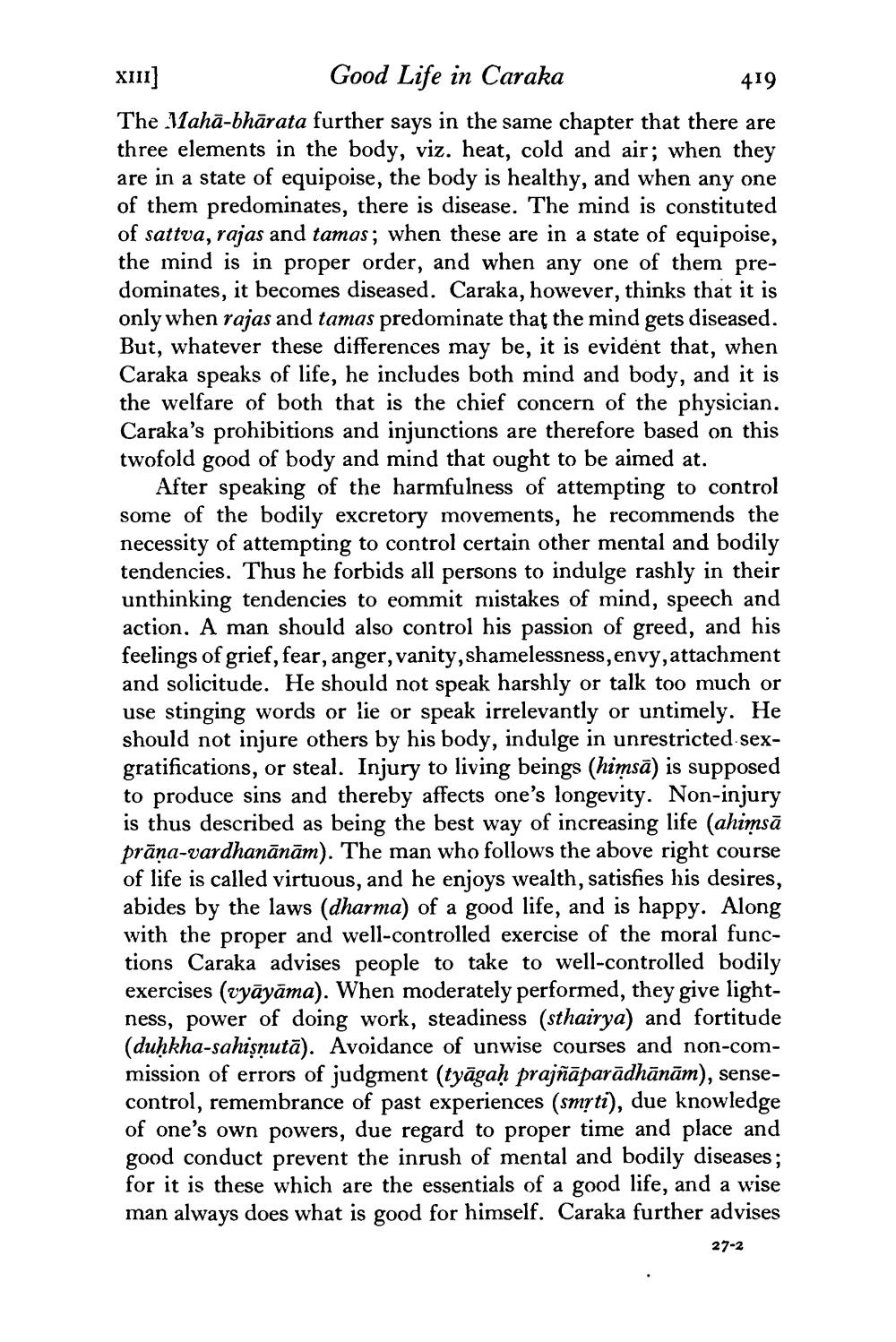________________
XIII]
Good Life in Caraka
419
The Maha-bharata further says in the same chapter that there are three elements in the body, viz. heat, cold and air; when they are in a state of equipoise, the body is healthy, and when any one of them predominates, there is disease. The mind is constituted of sattva, rajas and tamas; when these are in a state of equipoise, the mind is in proper order, and when any one of them predominates, it becomes diseased. Caraka, however, thinks that it is only when rajas and tamas predominate that the mind gets diseased. But, whatever these differences may be, it is evident that, when Caraka speaks of life, he includes both mind and body, and it is the welfare of both that is the chief concern of the physician. Caraka's prohibitions and injunctions are therefore based on this twofold good of body and mind that ought to be aimed at.
After speaking of the harmfulness of attempting to control some of the bodily excretory movements, he recommends the necessity of attempting to control certain other mental and bodily tendencies. Thus he forbids all persons to indulge rashly in their unthinking tendencies to commit mistakes of mind, speech and action. A man should also control his passion of greed, and his feelings of grief, fear, anger, vanity, shamelessness, envy, attachment and solicitude. He should not speak harshly or talk too much or use stinging words or lie or speak irrelevantly or untimely. He should not injure others by his body, indulge in unrestricted sexgratifications, or steal. Injury to living beings (himsā) is supposed to produce sins and thereby affects one's longevity. Non-injury is thus described as being the best way of increasing life (ahimsā prāṇa-vardhanānām). The man who follows the above right course of life is called virtuous, and he enjoys wealth, satisfies his desires, abides by the laws (dharma) of a good life, and is happy. Along with the proper and well-controlled exercise of the moral functions Caraka advises people to take to well-controlled bodily exercises (vyāyāma). When moderately performed, they give lightness, power of doing work, steadiness (sthairya) and fortitude (duḥkha-sahiṣṇutā). Avoidance of unwise courses and non-commission of errors of judgment (tyāgaḥ prajñāparādhānām), sensecontrol, remembrance of past experiences (smrti), due knowledge of one's own powers, due regard to proper time and place and good conduct prevent the inrush of mental and bodily diseases; for it is these which are the essentials of a good life, and a wise man always does what is good for himself. Caraka further advises
27-2




